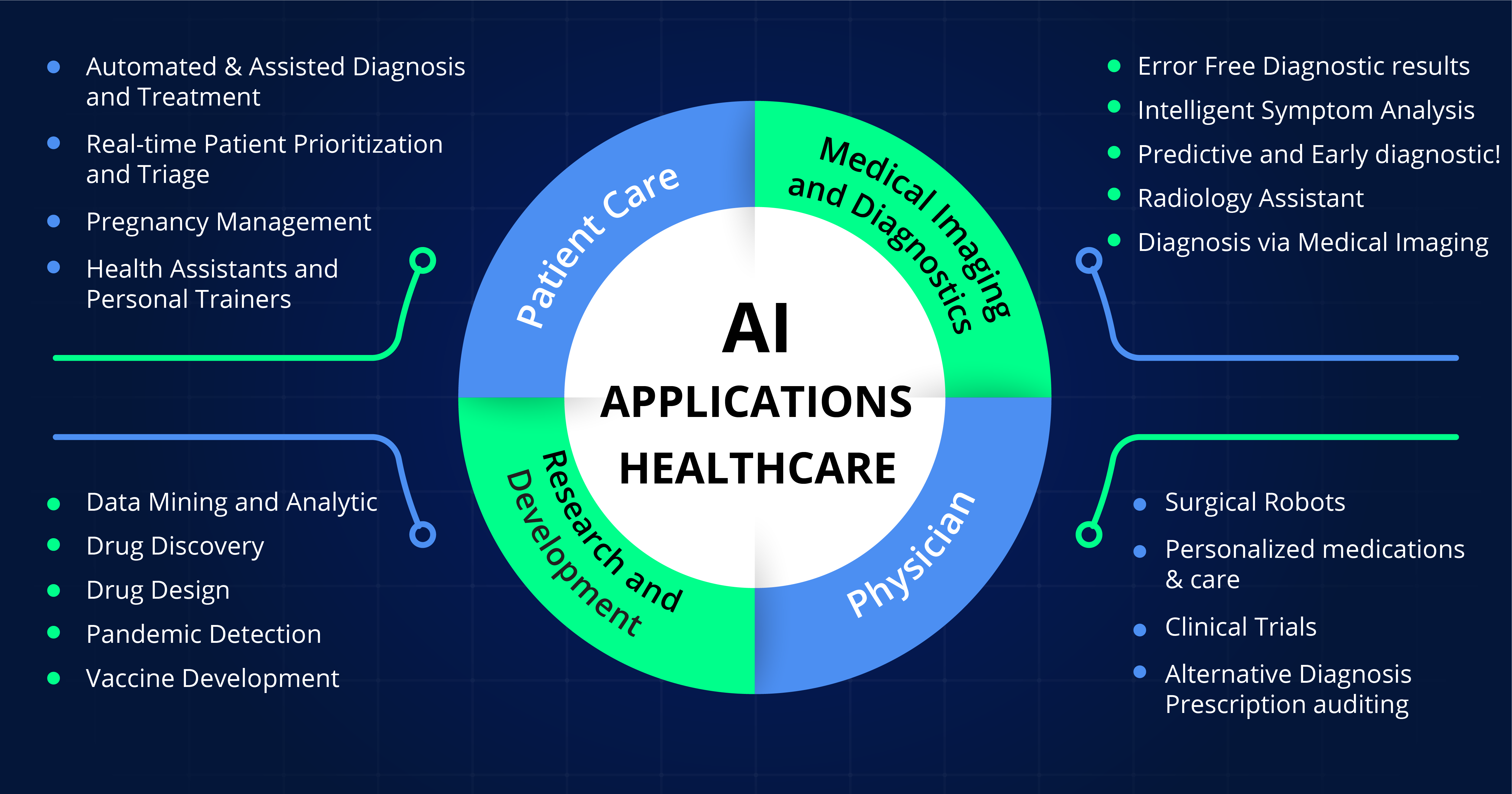
AI Revolutionizes Healthcare: Predictive Analytics and Personalized MedicineAI Revolutionizes Healthcare: Predictive Analytics and Personalized Medicine Artificial intelligence (AI) is transforming the healthcare industry at an unprecedented pace, with predictive analytics and personalized medicine standing as two groundbreaking applications. Predictive Analytics AI-powered predictive analytics enable healthcare providers to identify high-risk patients, predict disease progression, and optimize treatment. By analyzing vast amounts of data, such as medical records, genetic data, and lifestyle information, AI algorithms can generate insights that inform personalized care plans. For instance, AI can predict the likelihood of a patient developing chronic conditions like diabetes or cardiovascular disease. This empowers providers to implement preventive measures and intervene early, potentially saving lives and reducing healthcare costs. Personalized Medicine AI is also revolutionizing medicine by facilitating the development of personalized treatment plans tailored to individual patients. By combining patient-specific data with a deep understanding of disease mechanisms, AI algorithms can identify optimal drug combinations, predict treatment outcomes, and guide dosage adjustments. This patient-centric approach leads to more effective and targeted treatments. For example, AI can analyze a cancer patient’s tumor profile to predict the most promising drug candidates and develop customized treatment regimens. Benefits of AI in Healthcare The integration of AI into healthcare offers numerous benefits: * Improved patient outcomes: AI enables earlier detection, more accurate diagnoses, and tailored treatments, leading to improved health outcomes. * Reduced healthcare costs: Predictive analytics can identify patients at risk of developing expensive chronic conditions, allowing for early intervention and cost savings. * Patient empowerment: AI-powered personalized medicine provides patients with a greater understanding of their health and empowers them to participate actively in their care. * Increased healthcare efficiency: AI automates tasks, optimizes workflow, and improves communication, fostering increased efficiency and productivity. Challenges and Future Directions While AI has immense potential in healthcare, it also presents challenges. Concerns over data privacy, ethical considerations, and the need for trained healthcare professionals to interpret AI insights are crucial to address. Future developments in AI healthcare will likely focus on integrating AI into medical devices, developing more sophisticated algorithms, and exploring the application of AI in mental health and other complex medical conditions. In conclusion, AI is revolutionizing healthcare by unlocking the power of predictive analytics and personalized medicine. By empowering healthcare providers with data-driven insights and tailoring treatments to individual patients, AI has the potential to dramatically improve health outcomes, reduce costs, and enhance the patient experience. As AI continues to evolve, it is poised to play an increasingly significant role in shaping the future of healthcare.
Posted inNews